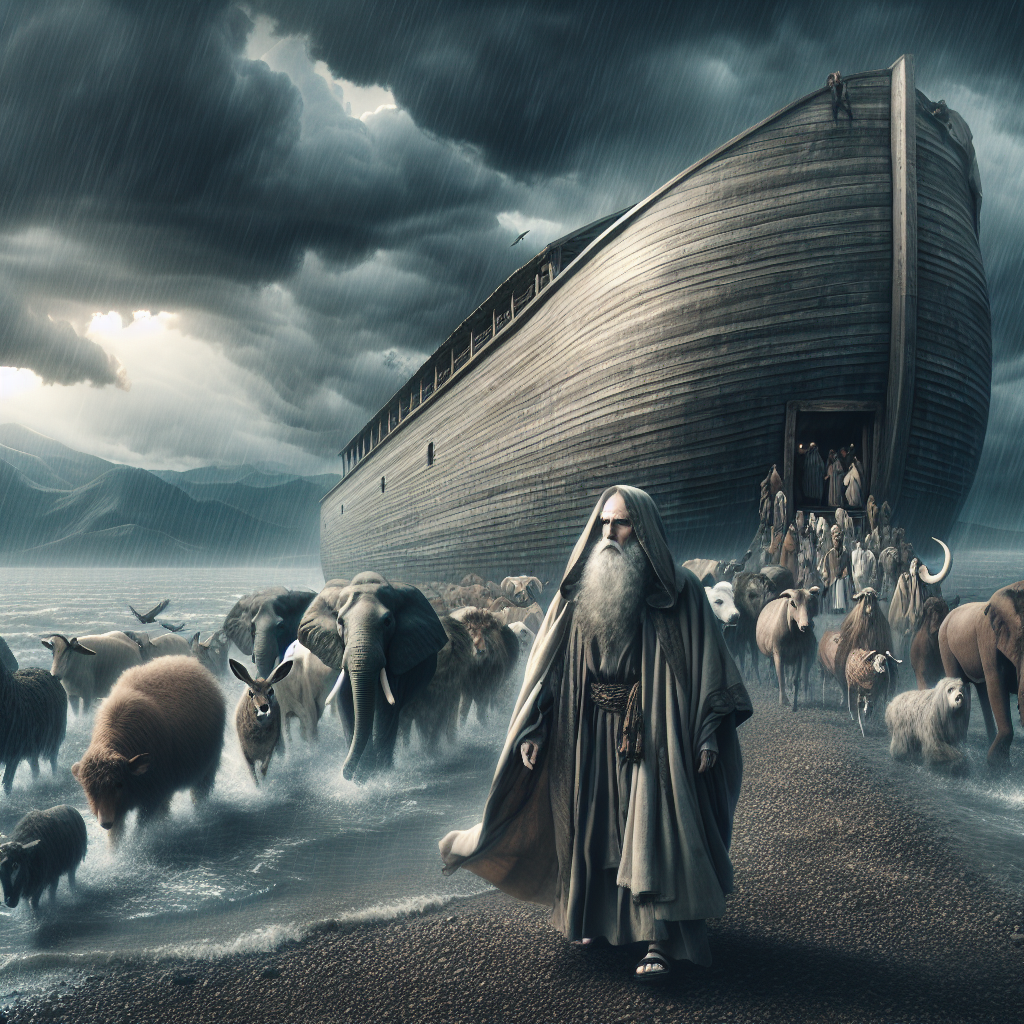Uncharted Waters: Noah’s Ark and Divine Purpose
Have you ever found yourself standing at the brink of an overwhelming task, feeling ill-equipped to tackle it? Noah, a man who earned the reputation of being righteous and blameless among his peers, faced this very challenge when God tasked him with building the Ark. Let’s dive into Noah’s story, its deep lessons, and how it speaks to us today.
The Divine Command: Building the Ark
Genesis 6:13-14 (NIV) says, "So God said to Noah, ‘I am going to put an end to all people, for the earth is filled with violence because of them. I am surely going to destroy both them and the earth. So make yourself an ark of cypress wood; make rooms in it and coat it with pitch inside and out.’"
Imagine waking up one day to find out that your new mission is to build a colossal boat, with no prior experience or blueprint, while facing skepticism from everyone around you. But Noah’s unwavering faithfulness is evidence of his strong relationship with God.
Noah’s Character: Foundations of Faith and Obedience
In Genesis 6:9 (NIV), Noah is described as "a righteous man, blameless among the people of his time, and he walked faithfully with God." These characteristics are fundamental not only to Noah’s success in his divine mission but also show us the qualities that drew God to choose Noah for this monumental task.
Key Traits of Noah:
-
Righteousness: Living morally and ethically upright, Noah distinguished himself from a morally declining world.
-
Blamelessness: Far from being sinless, blamelessness here refers to moral integrity and sincerity in a relationship with God.
-
Faithfulness: Noah walked with God, showing consistent fellowship and dependence on the divine.
Reflect: Do you find yourself striving to live a righteous and faithful life? How can Noah’s example inspire your daily walk?
The Great Flood and Deliverance
When the floodwaters came, everything changed. The earth was cleansed of its corruption, and Noah’s obedience was rewarded. Genesis 7:23 (NIV) tells us, "Every living thing on the face of the earth was wiped out; people and animals and the creatures that move along the ground and the birds were wiped from the earth. Only Noah was left, and those with him in the ark."
Despite the catastrophic event, Noah’s family, along with pairs of all creatures, found safety in the Ark. This narrative serves as a powerful metaphor for faith and trust in God’s plan, even when it appears insurmountable.
The Symbol of the Rainbow: God’s Promise
After the floodwaters receded, God made a covenant with Noah, marked by the rainbow. Genesis 9:13 (NIV) says, "I have set my rainbow in the clouds, and it will be the sign of the covenant between me and the earth." This promise was God’s assurance of His unfailing love and faithfulness.
Consider: How can you find and hold onto symbols of God’s promises in your own life? Do you see rainbows in your personal storms?
Applying Noah’s Story to Our Lives
Noah’s narrative is a timeless testament to trust, obedience, and righteousness. Here’s how you can apply his example in your own life:
-
Trust in God’s Plan: Even when the task seems overwhelming, remember that God doesn’t call the equipped; He equips the called.
-
Live Righteously: Strive for moral integrity and sincerity in your daily life, maintaining a strong relationship with God.
-
Hold On to Promises: Just as Noah clung to God’s words, find assurance in His promises for your own challenges.
Join the Conversation
How has Noah’s story inspired you? Do you find parallels in your own journey of faith and obedience? Share your thoughts and experiences in the comments below.
Together, let’s embark on our own journeys of trust and righteousness, inspired by Noah’s unwavering faith. Don’t forget to subscribe for more Bible insights and engage with our community of fellow believers!
If you want to want to research more Bible Answers on your own, please try our Bible Answers GPT. It’s easy to get lost in the interesting responses you’ll find… every search is like a new treasure hunt 🙂


